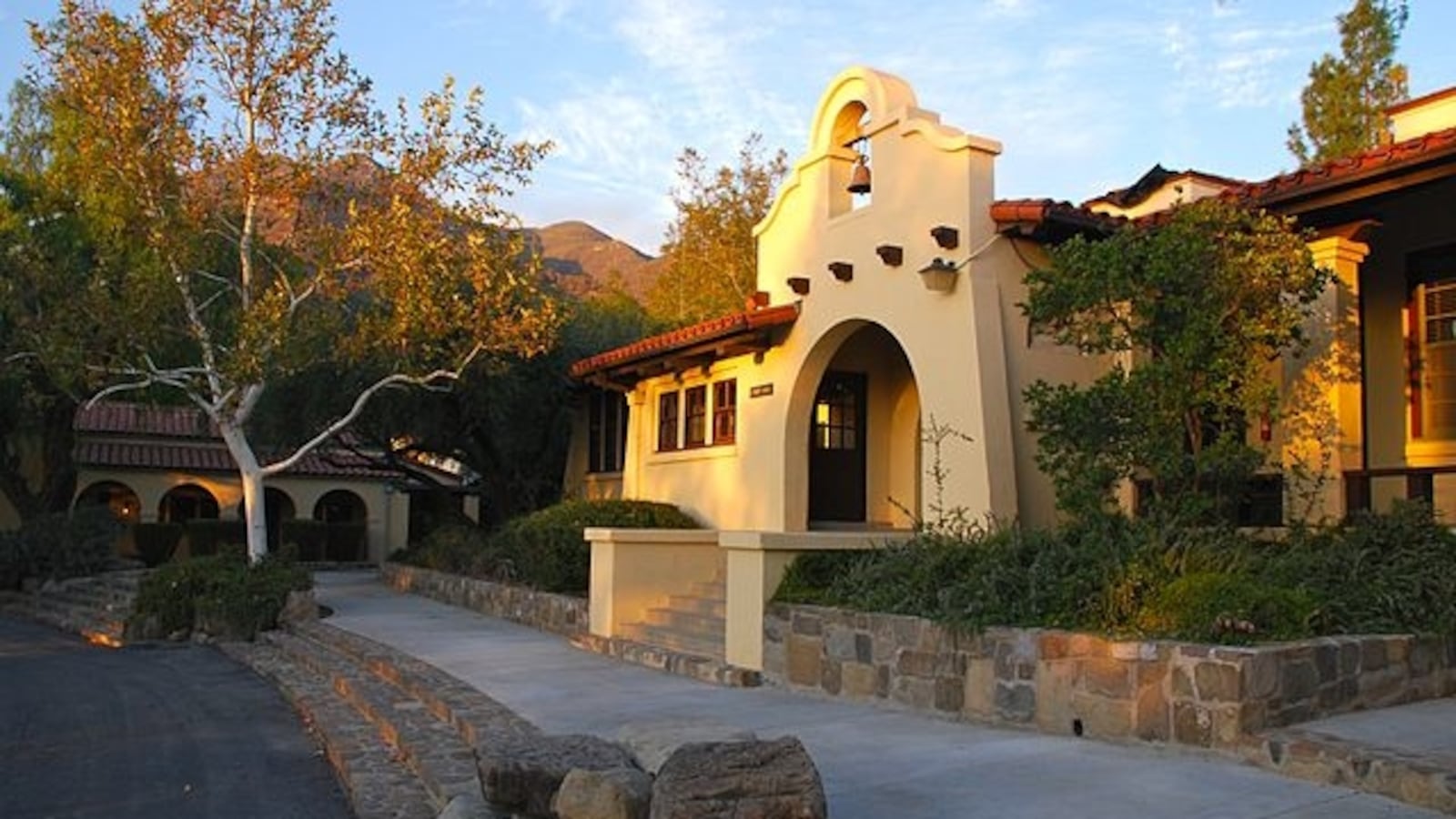The Thacher School, an elite $64,000-a-year boarding school in Ojai Valley, California, has a rich history as the oldest co-educational boarding school in California. It also, according to an independent report released by the school this week, has a deep history of covering up sexual assault and abuse.
The 91-page report, compiled by a prestigious law firm at the school’s request, describes allegations of sexual misconduct by both staff and students dating back to the 1980s, including sexual relationships between teachers and their high school students that are now under review by local authorities. And it contains multiple allegations of administrators pushing aside such complaints and teachers retaliating against students who spoke up.
In a statement, the school’s board admitted that the institution “failed to properly protect its students and alumni,” and that many suffered “lasting harm” and “further trauma” as a result.
“The School tolerated and at times fostered a culture that valued the experiences and voices of boys and men over those of girls and women and that allowed sexual misconduct to be minimized, ignored, and dismissed,” the board wrote. “In all these ways, the School failed to live up to its values.”
The Thacher school was founded in 1889 as an all-boys feeder school for Yale, located about 85 miles outside of Los Angeles. The school eventually began admitting women, but maintained its status as a rarefied institution where school breaks are spent on week-long camping trips and all students are given a horse to care for in their first year. Notable alumni include journalist Rukmini Maria Callimachi and playwright Thornton Wilder.
The school is revered for the close-knit nature of its community and the individualized attention students receive from faculty—an academic culture that is enviable, and also, the board admitted in its letter, “unfortunately vulnerable to abuse.”
Last year, after alumni demanded an investigation of past and current abuses, the school hired Munger, Tolles & Olson LLP to conduct an independent investigation. The law firm interviewed more than 120 people connected to the school, and the vast majority of the allegations in the report are backed up by multiple witness accounts and internal documentation.
In one instance, a Thacher student in the 1980s told investigators that a professor “befriended” her while she was a freshman, then forcibly kissed her and groped her at his home, according to the report. The next year, on a school-sponsored camping trip, she claims he raped her so violently she bled for a week. The abuse continued for years, and multiple faculty and students reported being aware of an inappropriate relationship between the two. But in a performance evaluation at the time, the then-assistant headmaster for academic affairs told the teacher he had “no concerns that your conduct is anything but professional.”
When the student’s mother eventually raised concerns with the school about the relationship, the student says she was questioned by another male administrator who pressed her for details about specific sexual acts and asked if she had “enjoyed” it. (This administrator denied using that exact language but said he would have conducted the interview differently in hindsight.)
The teacher eventually resigned, but other administrators encouraged the student not to return to campus, and she says teachers retaliated against her when she did, the report says. In her college recommendation letter, the school made sure to mention her “unfortunate involvement with a faculty member.”
The accused faculty member did not respond to the law firm’s request for a response.
The report names a total of four former Thacher faculty members against whom they received credible reports of sexual misconduct against Thacher students or recent graduates, and two who “failed to maintain appropriate boundaries.” Two more faculty members and several staff members accused of failure to maintain appropriate boundaries are not named.
In another instance detailed in the report, a male faculty member employed by the school in the late 1980s and 1990s was accused of inappropriately touching multiple female students, including by giving them unsolicited back massages. One former student told investigators he groped her breasts under her shirt during one such massage, and that he later lay on the floor with her and kissed her bare arms. Another student reported that shortly after graduation, the faculty member invited her to his house and began kissing her, then led her into the bedroom and performed oral sex on her before ejaculating into his boxers.
After teachers, family members, and victims reported these incidents and others to the school, an administrator confronted the faculty member about his conduct and demanded his resignation. But the faculty member returned to campus or attended school-related events several times in the following years, and was even invited to a former headmaster’s memorial service, the report says. He appeared in the school magazine at least four times after his resignation.
One student described the campus’ lack of a response to his resignation—and her subsequent distancing of herself from the Thacher community—as “equally as painful as the shame of being touched and sexualized by a trusted coach, teacher, and college counselor.”
The accused faculty member told investigators he had been “rightfully fired” for a transgression with a specific student and had felt “deep shame and regret ever since.”
Other instances of misconduct include a faculty member who allegedly sent a former student explicit emails and groped her breasts during her first year of college in the early 2000s, a female teacher who flirted with a male student and began a relationship with him after he graduated in the mid 2000s, and a “pattern” of inappropriate touching and sexual remarks toward students by a former headmaster. (The headmaster reportedly asked two girls to serve as waitresses at one of his dinner parties and told them to wear “slinky” or “sexy” clothes; he also allegedly picked up a student who had hurt her knee and told her “I am so glad I got close to you, I’ve never held you like this before.”)
The male faculty member told investigators he did not remember the groping incident and that any explicit emails were sent in the context of an “adult relationship.” The female faculty member denied engaging in any sexual misconduct through an attorney. The former headmaster is no longer alive.
Authorities in Ventura County told The Los Angeles Times they were reviewing a synopsis of about 20 incidents provided by Thacher officials last week to see if any of them constituted crimes. Because some of the allegations are decades old, authorities warned, many may fall outside of the statute of limitations.
“We are going to look into them on a case-by-case basis,” Sgt. Hector Macias of the Ventura County Sheriff's Department told the Times. “We are going to continue to work with the school and their law office in order to vet some of this out and see if the victims are willing to cooperate.”
In a letter to the campus community, Board Chair Dan Yih apologized to the survivors and their families, and thanked them for coming forward. He said the board accepted responsibility for the violations and was “taking steps to support you and to implement changes to all aspects of our work to prevent any recurrence of such painful events.”
Those steps included creating a therapy support fund for any survivors of sexual abuse related to their time at Thacher and implementing the corrective actions recommended in the report. Any teachers accused of sexual misconduct were no longer employed there, Yih said.
“We recognize that the pain and trauma that survivors experienced is real and long lasting,” he said. “We also recognize that family and friends of the survivors experienced their own pain and trauma as well. We hope that those who suffered harm will accept the Board’s profound and heartfelt apology as the School commits to the work ahead.”








